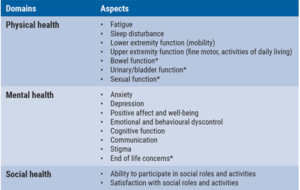The Benefits of the Keto Diet for MS
Living with multiple sclerosis (MS) can be challenging, but the keto diet for MS offers new hope. MS is a chronic disease that affects the central nervous system, causing a range of symptoms from fatigue to mobility issues.
According to recent data, around 90,000 Canadians and nearly 1 million Americans live with MS. These high numbers reflect the widespread impact of this disease.
Traditional treatments for MS often focus on managing symptoms and slowing disease progression. However, science now shows that following the ketogenic diet (KD) has potential therapeutic benefits.
The keto diet, high in fat and low in carbohydrates, forces the body into a state of ketosis, a metabolic state which has shown incredible promise in improving neurological conditions.
According to recent data, around 90,000 Canadians and nearly 1 million Americans live with multiple sclerosis.
What is Multiple Sclerosis (MS)?
Multiple sclerosis (MS) is a chronic autoimmune disease that affects the central nervous system (CNS), including the brain and spinal cord. In MS, the immune system mistakenly attacks the protective covering of nerve fibers, known as myelin. This damage disrupts communication between the brain and the rest of the body, leading to a variety of symptoms.
The symptoms of MS can vary widely among individuals. Common symptoms include fatigue, difficulty walking, numbness or tingling in the limbs, muscle weakness, and problems with coordination and balance. Some people may also experience vision problems, cognitive changes, and bladder or bowel dysfunction. The unpredictable nature of these symptoms can significantly impact daily life and overall quality of life.

MS is typically diagnosed in young adults. First symptoms usually appear between the ages of 20 and 40. Women are more likely to be diagnosed with MS than men. The exact cause of MS remains unknown. However, it is believed to involve a combination of genetic, environmental, and immune system factors.
Managing MS often involves a multidisciplinary approach, including medications to modify the disease course, manage symptoms, and address relapses.
Physical therapy, occupational therapy, and lifestyle changes can also play important roles in maintaining function and quality of life. Despite these efforts, many people with MS continue to seek additional ways to manage their symptoms and improve their health.
The search for effective treatments and management strategies for MS is ongoing. Recently, the ketogenic diet has emerged as a potential therapeutic option. By understanding how the keto diet works and its potential benefits for MS, individuals living with this condition can explore new avenues for managing their health and well-being.
MS is typically diagnosed in young adults. The exact cause of MS remains unknown, but it is believed to involve a combination of genetic, environmental, and immune system factors.
What is the Keto Diet?
The ketogenic diet (keto diet) is a high-fat, low-carbohydrate eating plan that has gained popularity for its potential health benefits. The primary goal of the keto diet is to shift the body’s metabolism from relying on carbohydrates for energy to using fats. This metabolic state is known as ketosis.

In a typical diet, the body converts carbohydrates into glucose, which is used for energy. However, when carbohydrate intake is significantly reduced, the body must find an alternative energy source. By increasing fat intake and reducing carbohydrates, the body starts to break down fats into ketones. These ketones are then used as the primary energy source.
Achieving ketosis involves strict adherence to the diet’s macronutrient ratios. Typically, this means consuming about 70-80% of daily calories from fat, 10-20% from protein, and only 5-10% from carbohydrates. Foods commonly eaten on the keto diet include meats, fatty fish, eggs, dairy products, nuts, seeds, oils, and low-carb vegetables.
Read: How Many Carbs a Day on Keto? – Your Ultimate Guide
Typically, the keto diet involves consuming about 70-80% of daily calories from fat, 10-20% from protein, and only 5-10% from carbohydrates.
Reducing Inflammation and Improving Mitochondrial Function
One of the key mechanisms by which the keto diet may benefit MS patients is through its anti-inflammatory effects.
Ketones, especially beta-hydroxybutyrate, have been shown to reduce inflammation in the body. This is significant for MS, as inflammation plays a major role in the disease’s progression.
Additionally, the keto diet can improve mitochondrial function and increase the production of brain-derived neurotrophic factor (BDNF), which supports the health and repair of neurons. These effects can potentially help in managing MS symptoms and slowing disease progression.

In summary, the keto diet is more than just a weight loss tool. Its potential to reduce inflammation, improve mitochondrial function, and support neuronal health makes it a promising dietary intervention for managing multiple sclerosis. By following the keto diet, individuals with MS may find a natural and effective way to improve their health and quality of life.
Ketones, especially beta-hydroxybutyrate, have been shown to reduce inflammation in the body.
This is significant for MS, as inflammation plays a major role in the disease’s progression.
Clinical Benefits of the Keto Diet for MS
A study published in the Journal of Neurology, Neurosurgery, and Psychiatry explored the clinical benefits of the keto diet for MS patients. This research provides promising insights into how the keto diet can improve various MS symptoms.
The study involved 65 participants with relapsing multiple sclerosis, who followed the keto diet for six months. Adherence to the diet was monitored through daily urine ketone testing, ensuring participants maintained ketosis. Remarkably, 83% of the participants adhered to the diet for the entire study duration.
Results and Improvements
Results showed significant improvements in several areas:
- Fatigue and Depression: Participants reported nearly a 50% reduction in self-reported fatigue and depression scores. This is particularly important as these symptoms can severely impact the quality of life for those with MS.
- Quality of Life (QoL): There were notable improvements in MS-related QoL scores. Physical health scores increased from 67 to 79, and mental health scores improved from 71 to 82. These enhancements suggest that the keto diet can positively influence both physical and mental well-being.
- Neurological Disability: Improvements were observed in the Expanded Disability Status Scale (EDSS) scores. Participants also showed better performance in physical tests like the 6-minute walk and the Nine-Hole Peg Test.
The study also highlighted significant changes in body composition and inflammatory markers:
- Body Composition: Participants experienced a reduction in fat mass and an increase in lean mass. These changes contribute to better overall health and physical function.
- Inflammatory Markers: There were decreased levels of serum leptin, a pro-inflammatory adipokine, and increased levels of adiponectin, an anti-inflammatory adipokine. This shift suggests that the keto diet can help modulate inflammation, which is crucial for managing MS.

The authors of the study concluded that the keto diet was safe and well-tolerated over the six-month period. They emphasized the potential of the diet as a complementary therapeutic approach for MS. As they noted, “Our results support the rationale for a large-scale study of a KD as a complementary treatment for MS.”
Overall, this study provides valuable evidence that the keto diet can significantly improve fatigue, depression, quality of life, and neurological disability in MS patients. These findings offer hope for those seeking natural and effective ways to manage their symptoms and enhance their daily lives.
Neuroprotective Effects of the Keto Diet
The European Journal of Microbiology & Immunology published a study titled “The impact of ketogenic diet on the onset and progression of multiple sclerosis.”
This research reviewed 15 original studies to assess how the keto diet affects MS. The findings highlight the diet’s neuroprotective effects and its potential to alleviate disease severity.
In preclinical studies with mouse models of MS, such as experimental autoimmune encephalomyelitis (EAE) and the cuprizone (CPZ) models, the keto diet showed significant benefits:
- Improved Motor Performance: Mice fed a keto diet exhibited better motor performance and preserved visual functions.
- Reduced Immune Cell Infiltration: The diet reduced immune cell infiltration in the central nervous system (CNS), indicating less inflammation and damage.
- Smaller Lesions: Keto-fed mice had smaller lesion sizes in the spinal cord, suggesting less severe disease progression.
Significant Improvements in the Expanded Disability Status Scale
Clinical studies echoed these positive results. One pilot study found that a modified Atkins diet, a version of the keto diet, improved fatigue, depression, and quality of life in patients with relapsing-remitting MS.
Participants also showed significant improvements in the Expanded Disability Status Scale (EDSS) scores, particularly in bowel, bladder, and sensory functions. MRI scans revealed no new or enlarging lesions, indicating stable disease progression.
The study also highlighted significant metabolic improvements:
- Body Mass Index (BMI) and Fat Mass: Participants experienced reductions in BMI, waist circumference, and fat mass, contributing to better overall health.
- Inflammatory Markers: The keto diet significantly reduced serum leptin levels, a pro-inflammatory marker, and increased adiponectin levels, an anti-inflammatory marker. This shift in inflammatory markers suggests that the diet can help reduce inflammation and improve metabolic health in MS patients.
- Fasting Insulin and Hemoglobin A1c: There were notable reductions in fasting insulin and hemoglobin A1c levels, indicating better blood sugar control and metabolic function.

The study concluded that the keto diet is a safe and feasible dietary intervention for MS patients. The diet’s ability to reduce fatigue, improve quality of life, and stabilize disease progression offers a promising option for managing MS.
This study provides strong evidence of the keto diet’s neuroprotective effects and its potential to improve various clinical and metabolic outcomes for MS patients.
By reducing inflammation and supporting better metabolic health, the keto diet presents a viable strategy for managing MS symptoms and slowing disease progression.
Participants showed significant improvements in the Expanded Disability Status Scale (EDSS) scores, particularly in bowel, bladder, and sensory functions.
Reducing Inflammation and Promoting Neuroprotection
The study published in Nutrients provides compelling evidence on the benefits of the keto diet for MS. This study explains how the keto diet can reduce inflammation and promote neuroprotection in MS patients.
These benefits stem from the diet’s ability to produce ketone bodies, such as β-hydroxybutyrate, which support mitochondrial respiration and enhance brain-derived neurotrophic factor (BDNF) synthesis.
Notably, the keto diet helps in reducing inflammation and oxidative stress. In a randomized controlled trial, MS patients on the keto diet experienced significant reductions in inflammatory markers. These reductions are crucial since chronic inflammation plays a major role in MS progression. Additionally, the diet improved metabolic parameters, leading to better overall health.

For instance, the study reported that the keto diet significantly increased lean body mass and paraoxonase 1 (PON1) levels. These changes are associated with reduced inflammation and oxidative stress. In addition, the diet led to a “significant intensification of the sensation of satiety,” which helps in weight management and overall well-being.
In a randomized controlled trial, MS patients on the keto diet experienced significant reductions in inflammatory markers.
Slowing Disease Progression
The impact of the keto diet on neurofilament light chain (sNfL) levels, a biomarker for neuronal damage in MS, was noteworthy. Six months into the diet, sNfL levels decreased, indicating a neuroprotective effect. This reduction suggests that the keto diet can help protect neuronal integrity and slow down disease progression.
Interestingly, the Mediterranean model of the keto diet may offer even greater benefits. This variant includes a higher intake of polyphenols, which activate the nuclear CREB factor, further increasing BDNF levels. Thus, the Mediterranean keto diet not only supports neuronal health but also promotes overall well-being through its anti-inflammatory properties.
Read: The Mediterranean Keto Diet: Blending Two Powerful Programs
In summary, the keto diet presents a multifaceted approach for managing multiple sclerosis. By reducing inflammation and promoting neuroprotection, it offers a comprehensive strategy to improve metabolic health and support neuronal repair.
As the study concludes, “taking into account the wide range of the effect on many aspects and potential therapeutic possibilities of the ketogenic diet in MS, further studies in this respect seem extremely necessary.” This highlights the need for more extensive research to fully understand and optimize this dietary intervention for MS patients.
Six months into the diet, sNfL levels decreased, indicating a neuroprotective effect, suggesting that the keto diet can help protect neuronal integrity and slow down disease progression.
Improving Sleep and Quality of Life for MS Patients
The exploratory study published in Sleep Medicine, titled “Ketogenic diet may improve sleep quality and daytime somnolence in patients affected by multiple sclerosis,” sheds light on another significant benefit of the keto diet for MS patients: improved sleep.
onducted by Giovanni Merlino and colleagues, this study focused on 21 MS patients with minimal or no disability. The aim was to determine if the keto diet could alleviate sleep-related issues and enhance overall quality of life (QoL).
The results were compelling. After six months of following the keto diet, participants experienced significant improvements in sleep quality and reductions in daytime sleepiness.
The Pittsburgh Sleep Quality Index (PSQI) scores decreased from an average of 7.7 to 4.4, indicating better sleep quality. Similarly, Epworth Sleepiness Scale (ESS) scores dropped from 7.5 to 4.9, reflecting less daytime sleepiness.

These improvements in sleep had a positive impact on psychological well-being and QoL. The study found that better sleep quality directly contributed to reduced psychological distress.
Specifically, lower global PSQI scores predicted lower levels of anxiety, stress, and mental health issues. As the authors noted, “The diet therapy improved all the sleep complaints,” highlighting the comprehensive benefits observed across various sleep parameters.
“The diet therapy improved all the sleep complaints,” highlighting the comprehensive benefits observed across various sleep parameters.
Body Composition and Psychological Improvements
Additionally, the study reported positive changes in body composition and psychological status:
- Body Mass Index (BMI) and Fat Mass: Participants experienced significant reductions in BMI and fat mass, along with an increase in lean body mass. These changes contribute to better overall health and physical function.
- Psychological Status: Using the Depression Anxiety Stress Scale-21 (DASS-21), researchers observed significant decreases in depression, anxiety, and stress scores. This improvement in mental health was also reflected in the Multiple Sclerosis Quality of Life-54 (MSQOL-54) subscales, particularly those related to mental health, energy, and cognitive function.
Overall, this study provides a promising perspective on the potential of the keto diet to improve sleep and overall well-being in MS patients. By enhancing sleep quality and reducing psychological distress, the keto diet offers a holistic approach to managing MS symptoms and improving quality of life.

Key Takeaways
The studies reviewed provide substantial evidence supporting the benefits of the keto diet for individuals with multiple sclerosis (MS). Here are the key takeaways:
- Reduction in Fatigue and Depression:
- The keto diet significantly reduces fatigue and depression, leading to a better quality of life for MS patients.
- Improved Quality of Life:
- Participants in various studies reported notable improvements in both physical and mental health-related quality of life measures.
- Neuroprotective Effects:
- The keto diet helps protect neurons and may slow the progression of MS. This is achieved through the reduction of inflammatory markers and the promotion of neurotrophic factors like BDNF.
- Metabolic Health Improvements:
- The diet improves metabolic health by reducing body mass index (BMI), waist circumference, and fat mass, while increasing lean body mass.
- Reduction in Inflammatory Markers:
- Significant reductions in pro-inflammatory markers and increases in anti-inflammatory markers suggest the diet’s potential to modulate inflammation.
- Enhanced Sleep Quality:
- The keto diet leads to better sleep quality and reduces daytime sleepiness, which, in turn, improves psychological well-being and overall quality of life.
- Potential for Further Research:
- While the findings are promising, more extensive studies with larger cohorts are necessary to fully understand and optimize the keto diet’s benefits for MS patients.
By incorporating these key takeaways, individuals with MS can see the potential benefits of adopting the keto diet. This dietary intervention offers a comprehensive approach to managing symptoms and improving overall health.

Final Thoughts
The ketogenic diet offers a promising and natural approach to managing multiple sclerosis (MS). As the studies reviewed demonstrate, this high-fat, low-carbohydrate diet can significantly improve various aspects of life for those living with MS. From reducing fatigue and depression to enhancing sleep quality and overall quality of life, the benefits of the keto diet are substantial.
One of the most compelling aspects of the keto diet is its potential to reduce inflammation and promote neuroprotection. By lowering pro-inflammatory markers and increasing anti-inflammatory markers, the diet helps modulate the immune response, which is crucial in managing MS. Additionally, improvements in metabolic health and body composition further support the overall well-being of MS patients.
The keto diet offers hope for a better quality of life for those with MS. By considering this dietary approach, individuals may find a natural and effective way to manage their symptoms and enhance their daily lives.
Continued research and larger studies will further illuminate the full potential of the keto diet in managing multiple sclerosis, offering even greater insights and benefits for those affected by this challenging condition.
In conclusion, the keto diet presents a viable and hopeful option for managing MS. By adopting this dietary change, individuals with MS can take proactive steps towards improving their health and well-being, finding relief and support through natural means.
References
- Pilot study of a ketogenic diet in relapsing-remitting MS. Neurology Neuroimmunology & Neuroinflammation
- Phase II study of ketogenic diets in relapsing multiple sclerosis… Journal of Neurology, Neurosurgery and Psychiatry
- The impact of ketogenic diet on the onset and progression of multiple sclerosis. European Journal of Microbiology & Immunology
- The Role of Ketogenic Diet in the Treatment of Neurological Diseases. Nutrients
- Effects of Ketogenic Diet on Neuroinflammation in Neurodegenerative Diseases. Aging and Disease
- Role of Ketogenic Diets in Multiple Sclerosis… Advances in Nutrition
- Ketogenic diet may improve sleep quality and daytime somnolence in patients affected by MS… Sleep Medicine
- Anti-inflammatory action of β-hydroxybutyrate… Aging
- Canadian Chronic Disease Surveillance System (CCDSS). Government of Canada
- MS Canada
- National Multiple Sclerosis Society
Keto PowerFlax Baking Mix: Keto & So Much More!

- Commercial Bakeries: you can easily produce delicious flax-based keto-friendly products which are clean label, high protein, high fiber and vegan
- Works with your current equipment and baking processes
- Recipes provided on all bulk orders, with ongoing customer support
- Worldwide shipping
- Get in touch with us today!

What to Read Next
- Healing Disease Through Diet: Why Ketosis Works
- Keto Diet For Migraines: New Study
- The Chronic Fatigue Syndrome Diet (Keto For CFS)
- Keto Diet for Psoriasis: Scientific Studies on Natural Relief
- Mental Health, Mitochondria & Keto: Feel Better Naturally
- How Many Carbs a Day on Keto? – Your Ultimate Guide

